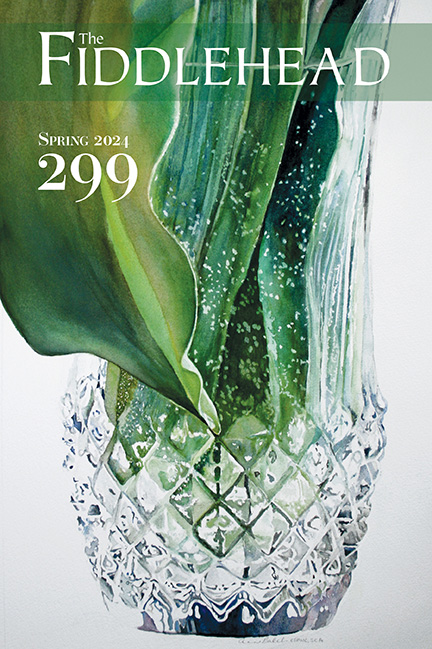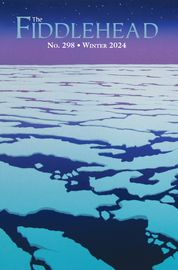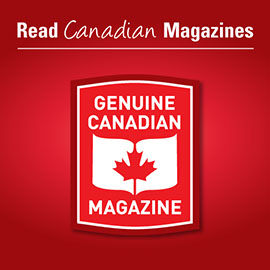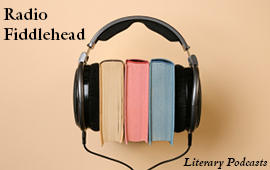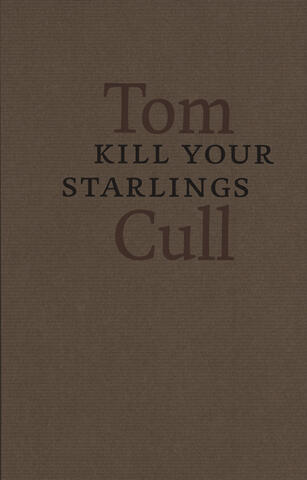
“Junkyard Apocalypse”: Uneasy Ecopoems, Unhomely Homes by David Huebert
Kill Your Starlings, Tom Cull. Gaspereau Press, 2023.
Tom Cull’s first full-length book of poetry, Bad Animals, was published in 2018 by Insomniac Press. With his sophomore collection, Kill Your Starlings, Cull retains many of the core themes of his previous work (rivers and water; environmental absurdity; garbage and found objects; animal-human relations; museums and the archival spectacle; colonial theft and the ongoing violence of the settler state; place as organism and home as verb — the way both live and grow in us) while significantly expanding the range and sophistication of his art. Cull works in many different conceits, voices, forms, and modes, equally deft in ekphrasis (“Voice of Fire”), the lyric (“Laika”), formal repetition (“Bounce Back”), imagism (“Heron”), the mock epic (“Auto Erotica”), narrative (“The Mind of Winter”), and prose poetry (“Collapse”). Having grown up in a farming community in rural Huron County, Cull strives to write accessibly, often taking on a familiar, conversational voice. Kill Your Starlings is by turns playful and irreverent, harrowing and hilarious; taken as a whole, it is entirely eco-fabulous.
Cull, who works for the Upper Thames River Conservation Authority, is also an educator, writer, former Poet Laureate of London, Ontario, and founder, with his partner Miriam Love, of Antler River Rally, a grassroots river stewardship organization that led seventeen cleanups in 2023, the group’s twelfth season of action. As befits an environmental activist, the primary view in Kill Your Starlings is ecological. But here, as the book’s winking title suggests, there is no straightforward “nature” or clean “ecology.” A serial ironist, Cull’s interest is not in what is good or bad but in the feedback loops, complications, and entanglements of ecological being. Cull’s work often alludes to slacktivism and digital mediation and the pitfalls of human environmental intervention. Meanwhile, nonhuman creatures look back at the poet with wry, knowing grins. Here, for example, is a moment from “Gizzard Shad,” typical of Cull’s disposition:
Three boys smash the water with sticks.
The profound moment of interspecies encounter, man and fish locking eyes, is unsettled and destabilized by the raucous intervention of human juvenile exuberance, characteristically violent. These poems often explore such moments, asking, by implication, how we can memorialize nonhuman life while knowing how difficult it seems to be for human beings to live without doing damage.
Perhaps Cull’s most affecting and persistent paratactical impulse is the pairing of the sublime and the banal. The poem “Extinction Events,” for example, begins in a marine life museum display:
In a sea-dark basement, blue lit,
we sit in Muskoka chairs, look up
at massive rib cage carriages, car-wash baleen,
spinal cord rollercoasters.
While this poem risks a descent into bombast — “We stand at the end of evolution” — it balances with an unexpected turn, closing in a parallel setting to the museum, the modern-sterile-scape of an IKEA cafeteria:
I tell you that when I die, I want
to be shrink-wrapped, buried
on a Soderhamm sectional
surrounded by pots of Swedish meatballs.
This volta is indicative of Cull’s poetics, which often leaven the somber into comedy. Cull’s work both destabilizes the larger, generalized dread of ecological doom and gloom and grounds genuine environmental concern in the local and the personal. Despite the ironic touches, Cull is also genuinely interested in the ecological questions we confront in an IKEA showroom — emblem of the alienation between the goods we use and their matter and making. Cull’s collection demonstrates again and again that materialism — thinking seriously about the substances we touch, flesh and blood, gas and plasticene — is a pathway into the most profound questions of our ecological experience.
Another major concern, for Cull, is the linked question of home and land, viewed from a settler perspective. A poem called “Treaty 45 ½” draws on the work of Aamjiwnaang historian David D. Plain to unravel the deep time absurdity of a single place, now known as Point Clark, Ontario. The poem tells a story of place, from “paleo hunters” to “rural ruins,” ultimately
emphasizing the cultural narcosis necessary to uphold the narratives of the settler-colonial state called Canada: “Wolfe and Montcalm lulling us into daily disremembering.” This last word, combining the violence of “dismember” with the strategic amnesia of “disremember,” demonstrates the editorial precision at work in each of the poet’s word choices, revealing the highly crafted nature of Cull’s ostensibly casual tone.
The exploration of Cull’s home landscape continues in “Aerial Photograph”:
Our patch of land: Lot 33, Concession 9, a corner
of Wawanosh bordered by the Menesetung,
a river unnamed for a Governor who dreamed schools
to cut up vice and idolatry by the roots
This “unnamed” river, which appears often in Cull’s work, is officially called the “Maitland River.” But Cull refuses the politics of colonial naming, not wanting to concede to the vexed legacy of Governor Peregrine Maitland, an early supporter of residential schools and their policy of assimilation. The last layer of Kill Your Starlings is a highly personal one; there is genuine sadness, complex emotion, and a darker introspection here, valences that appeared less often in Bad Animals. It was an exhilarating surprise to this reviewer to discover that the climax of this volume would come through a turn inward, an exploration of a different kind of ecology: the family. It would be difficult to read the final movement of Kill Your Starlings without being struck by a change in voice occurring in the long prose poems “Collapse,” “Black and White,” and “Autopsy Report.” The latter is a touching extended reflection on the poet’s father’s life, told with a focus on the older man’s disabled right arm, which his sons call “the crink.” These prose poems are the least ecological poems I’ve read by Cull, and the most earnestly emotional. I had the opportunity to ask Cull about this shift in his work, and he said, “At this stage in my life, I don’t section things off.” It might be wrong, then, to say this is a departure. Rather, let’s call it a homecoming, or, as Cull puts it in one of his titles, an “Always Coming Home.”
— David Huebert’s debut novel, Oil People, will be released in August 2024 by M&S.
